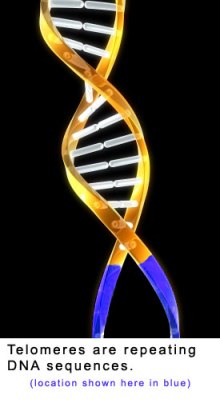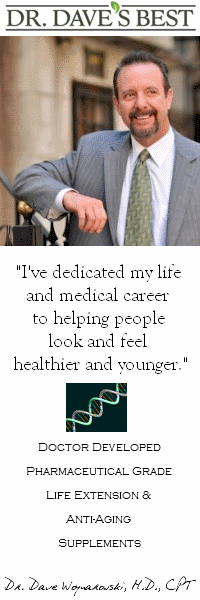 About a year ago, I gave a lecture in Boise, Idaho, on anti-aging. I spent a fair amount of time on epigenetics. A month or so after that, I spoke at David Wolfe’s Longevity Now Event and predicted epigenetics would be the next big thing. Well that has apparently happened, as there are a ton of people writing about it now and it recently made the cover of Time magazine. I have to admit, this is a compressed time table, even in today’s “gotta have it now”, info-based world.
About a year ago, I gave a lecture in Boise, Idaho, on anti-aging. I spent a fair amount of time on epigenetics. A month or so after that, I spoke at David Wolfe’s Longevity Now Event and predicted epigenetics would be the next big thing. Well that has apparently happened, as there are a ton of people writing about it now and it recently made the cover of Time magazine. I have to admit, this is a compressed time table, even in today’s “gotta have it now”, info-based world.
As usual, there is a lot of misinformation and nonsense out there, so it seems a good time to sort it out, so at least YOU won’t be deceived. People have already started using the word epigenetics inappropriately and more than one has used it to try to further an agenda that has nothing to do with it.
Kinda reminds me of the word “telomere” and what has happened since we wrote our little book, The Immortality Edge.
Strictly speaking, epigenetics means “around or surrounding the genome”. The study of epigenetics results in the science of gene expression patterns, heritable through cell division, that is independent of DNA sequence. In other words, stuff that acts like genes but isn’t! More on that later, but this “around the genome” bit structurally refers to the scaffolding matrix that holds our genetic material DNA in tightly wound packets. It refers to the proteins that surround and are part of that scaffolding and interact with our DNA, some of which actually let pieces of it unwind, for copying purposes. There are a myriad of scientific terms that refer to the signals that let the epigenetic matrix do its thing. You will hear more of these terms (you might want to find my lectures at Longevity Now on YouTube, since I go over all this, there in detail) like methylation, histone acetylation, ubiquitination, cyclin dependent kinases and the like. These are part of the signaling that lets that epigenetic matrix do its thing, as well. Finally, you should know that, while I am going to stress how much you can change your physical fate and outcomes by altering your epigenetics, you should understand that a large part of your epigenome is not something you want to change, as it is responsible for genetic stability and lends structural soundness to your DNA.
Take home point 1: Epigenetics is a very complex science that controls how our genes are read. We have a long way to go, to figure out what is involved and what we can and can’t change and how it works.
Take home point 2: Anyone who tries to convince you they have the complete answer and know all there is to know about this, is simply lying or delusional.
OK, enough structural science; what does this epigenetic thing really mean for you and me, anyway? Well, the real meaning for most people is this: You are not locked into all of your genes. If you’ve been reading my stuff for a while, this is not new to you. But, I am getting more and more new people, so it’s important to repeat it. You are not locked into your genes, mainly because of epigenetics.
Some of the stuff you CAN change, is which genes get read with regards to obesity, diabetes, heart disease, many cancers and all of the inflammatory diseases we associate with the “diseases of aging”.
Epigenetics allows a huge variation in which genes are actually read and which ones are not. In my lectures, I describe the genes and your DNA, as all the books in the library — and the effect of epigenetics as the books you personally check out and read. Functionally, this means your environment, which is primarily how YOU treat YOU, determines your fate, not your genes. As a matter of fact, the 80/20 rule applies here. You have control over about 80% of your health just by how you eat, sleep, deal with stress, exercise, etc. Your exposure to toxins, radiation, etc. counts as well, but for most of us, it’s the stuff we do every day that matters most. Recent studies have shown that one healthy meal and one bout of exercise can positively improve your epigenetics by altering which genes are read and not read.
If you’ve read The Immortality Edge, then basically everything you do to keep your telomeres healthy is exactly the right thing for “good” epigenetics.
That is the good news; now for some warnings. Epigenetics is heritable. That means you start out with what your parents gave you. But, unlike your genes, which your parents also gave you, you are not stuck with it. Almost as soon as you are born, your own experiences begin to shape your epigenetics differently, to some extent. By the time you are a responsible adult (ahem!), you can change them drastically, in a relatively short period of time – weeks to months. Above, I mentioned that one bout of exercise or a healthy meal can start that process almost immediately and with a little persistence, you can make those changes permanent (until you go back to your old habits, anyway!). This means that all this nonsense about “you are fated to be fat, by what your mother ate” is mutable, changeable and utterly under your control, at least as you reach adulthood! It should give expectant mothers pause though!
Another warning! Epigenetics is not the creation of new genes. If the human genome does not have a gene for it, epigenetics will not create that gene. So, for instance, epigenetics does not make eating plant Omega 3’s a good way to get them, because there is no effective way to convert them into the long chain fatty acids you need. It does not make gluten and lactose good food choices, because the genes to process those substances are either not there, or turned off early in life, in most of us. Epigenetics is not likely to turn them back on and it certainly will not create a new gene. It also does not mean that you can eat the Okinawa diet and expect the same results as the Okinawans’, since your epigenetics are likely to be very different. China Study, anyone?! So, be wary of people who use this argument to further their own dietary agendas.
It’s also probably only a matter of time before some slick marketer starts using the term epigenetics to sell supplements as well. Here is the thing: almost all supplements act via epigenetics. Fish oil and Vitamin D are two examples, although fish oil also acts directly on membranes, ion channels, mitochondrial biochemistry and of course telomeres as well. Most other supplements, worth their salt, alter genetic expression by changing and altering the epigenetic matrix.
Once again, everything that is good for your telomeres is good for your epigenetics. Antioxidants, Omega 3’s, Vitamin D, Carnosine (a potent methylating agent, in a good way) and Co Q10 are examples of double duty on telomeres and epigenetic alteration of genetic expression. I put my vote in for the Telomere Edge Pack and TA-65 for obvious reasons, as well. There is some very intriguing stuff on the horizons for stem cells as well, but this will not come from the usual suspects. For now, just remember this word: Klotho. I’ll tell you more about it later and the science is far from certain yet, so keep reading the newsletters and blogs.
My point is, don’t fall for the inevitable “epigenetic supplement or diet” hype, unless it comes from a knowledgeable, credible source, who is more than marketer and actually studies the field. Trust me, most people out there will be selling old news, packaged in a new box!
The take home point 3 is simple. A good bit of your future and your fate are very much under your control, because of epigenetics. This is nature’s way of taking what is set in stone (your genes) and creating a tremendous ability to adapt what you build with it! You really are the captain of your ship, to a large extent.
Build well and live well! If you’ve been reading my info for the past 12 years, you are ahead of the game! Tell someone you love.
Doc
PS wanna lay bets on how long it takes for someone to come out with the book The Epigenetic Diet or how about Eating for Your Epigenetics – LOL!
 Over the past couple of days, I have dug pretty deep into the metabolic associations between obesity, diabetes, and short telomeres. The end result is of course, accelerated aging.
Over the past couple of days, I have dug pretty deep into the metabolic associations between obesity, diabetes, and short telomeres. The end result is of course, accelerated aging.
 Over the past few years chocolate has garnered a lot of attention as a health food. Some people have even decided it’s a “super food”, capitalizing on a category that seems to encompass everything your grandmother told you to eat when you were growing up, along with some exotic Far Eastern fruits.
Over the past few years chocolate has garnered a lot of attention as a health food. Some people have even decided it’s a “super food”, capitalizing on a category that seems to encompass everything your grandmother told you to eat when you were growing up, along with some exotic Far Eastern fruits. About a year ago, I gave a lecture in Boise, Idaho, on anti-aging. I spent a fair amount of time on epigenetics. A month or so after that, I spoke at David Wolfe’s Longevity Now Event and predicted epigenetics would be the next big thing. Well that has apparently happened, as there are a ton of people writing about it now and it recently made the cover of Time magazine. I have to admit, this is a compressed time table, even in today’s “gotta have it now”, info-based world.
About a year ago, I gave a lecture in Boise, Idaho, on anti-aging. I spent a fair amount of time on epigenetics. A month or so after that, I spoke at David Wolfe’s Longevity Now Event and predicted epigenetics would be the next big thing. Well that has apparently happened, as there are a ton of people writing about it now and it recently made the cover of Time magazine. I have to admit, this is a compressed time table, even in today’s “gotta have it now”, info-based world.



